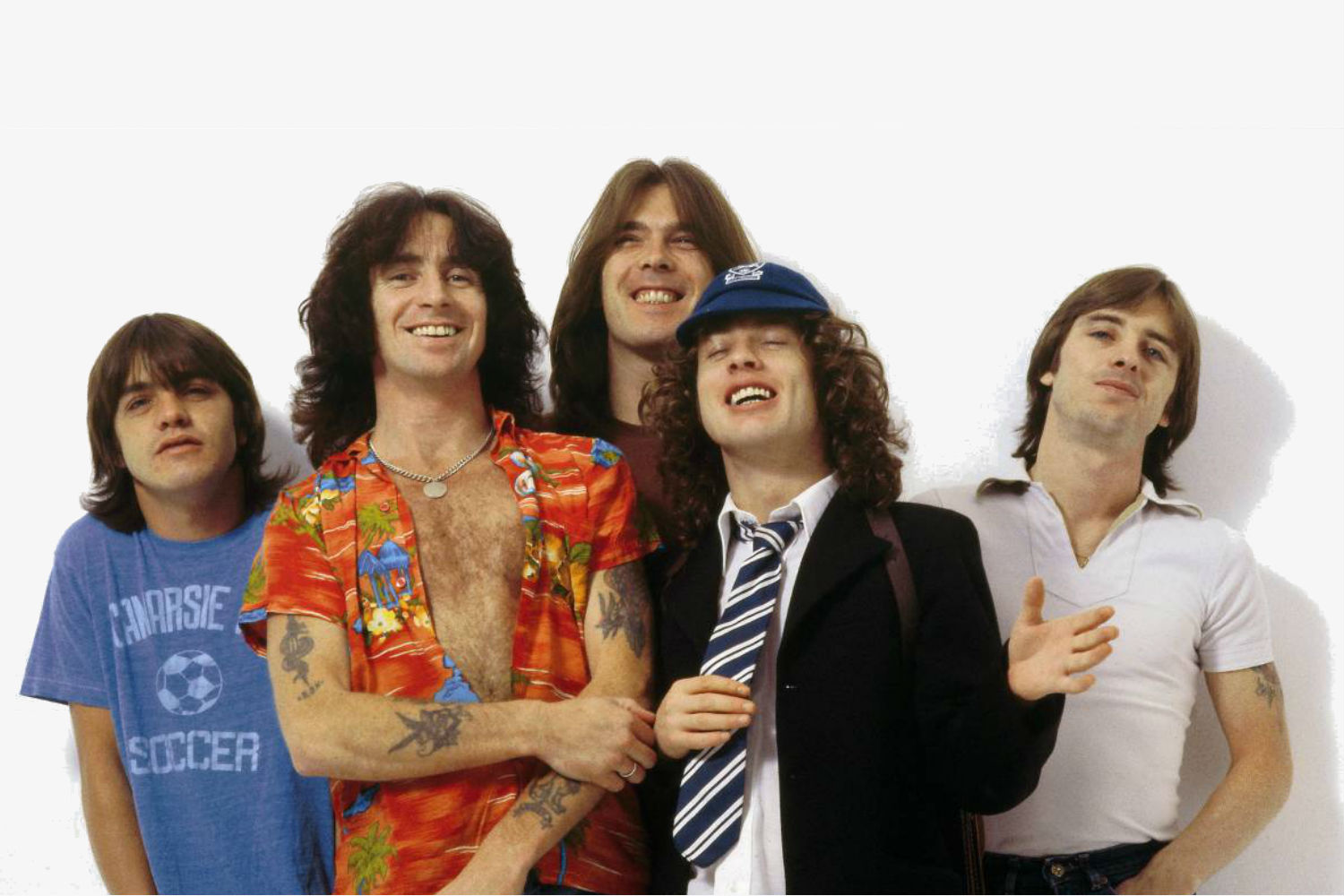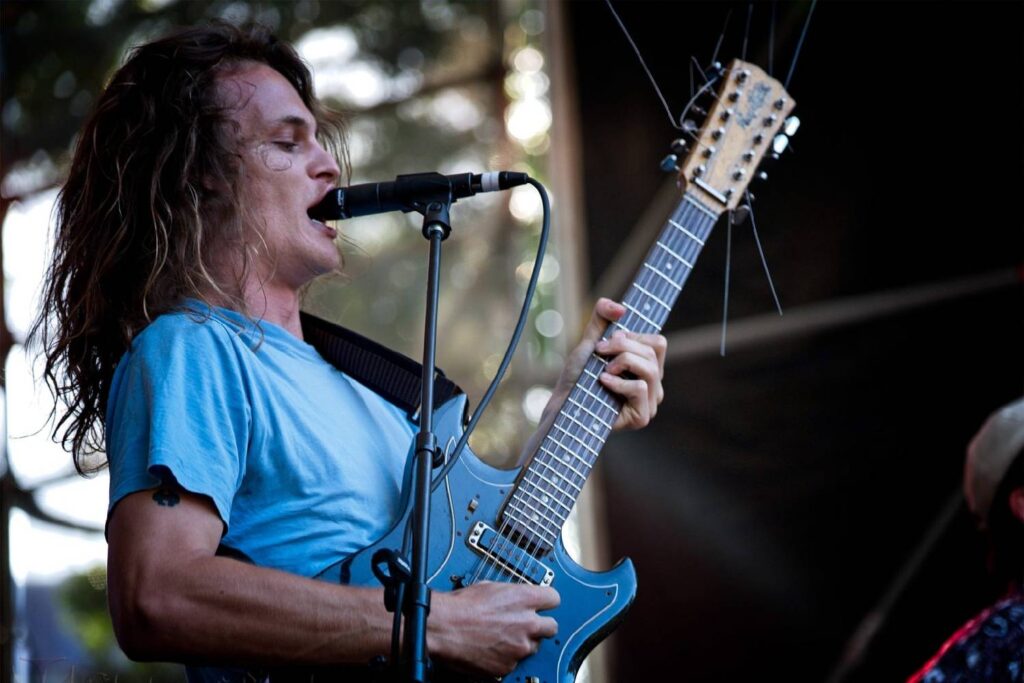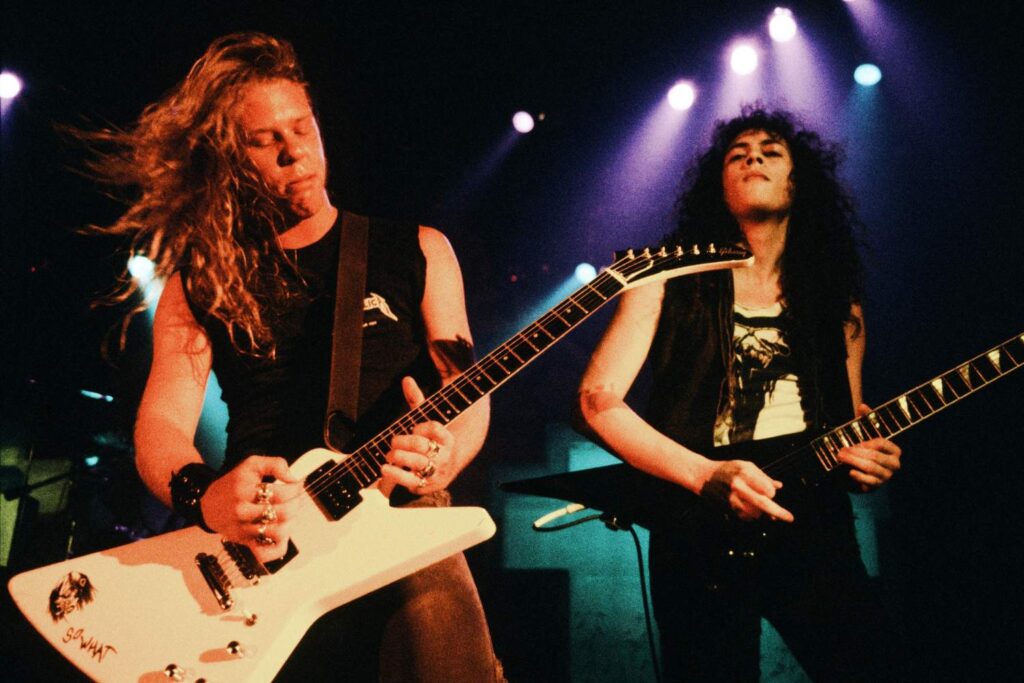Few bands have forged a legacy comparable to that of AC/DC.
Over a career that spans five decades, AC/DC, the Australian rockers have gone through hell and high-water, experiencing the lowest of lows and reaching the most triumphant of peaks on their road to greatness. They’re considered by many as one of the most quintessential rock ‘n roll bands the world’s ever seen, and with a tally of over 200 million records sold worldwide, they’re also classified as one of the most commercially successful acts of all time.
Read all the latest features, lists and columns here.
AC/DC
Thanks to the genius of Angus and Malcolm Young, AC/DC have retained their status as mainstream radio staples, and it’s rare that you could ever go a day listening to an FM station without hearing ‘Highway To Hell’ or ‘Back In Black’ at least once.
AC/DC Thunderstruck
Besides the hits like “Thunderstruck”, “Highway to Hell” and more, there does exist a hidden treasure trove of AC/DC tracks that show the band at their best, yet have never garnered much attention in the public domain, and it’s these tracks that we’re striving to reveal today.
With the band’s 18th studio album PWR/UP arriving tomorrow, we’re putting on our school uniforms and duck-walking through the annals of AC/DC’s discography to check out some of the band’s most underrated or under appreciated cuts, showcasing a different side to the Aussie rock behemoth that is AC/DC.
‘Soul Stripper’ – High Voltage (1975)
We all know that there’s a tried-and-true formula to an AC/DC song – few bands can get away with sticking to such a simple methodology for the entirety of their career, but somehow, these guys found a way. However, before they had it all figured out, the Young brothers were prone to some surprising songwriting experiments, and one of their best might just be ‘Soul Stripper’, a rarity from the band’s Australian-exclusive debut album High Voltage.
There’s so many things about ‘Soul Stripper’ that make it great: for starters, that disco beat that kicks off the track is addictive as hell, and the use of space in the song’s verses is almost unprecedented in any AC/DC track.
However, the big drawcard about this one is the guitar work: ‘Soul Stripper’ is one of the few tracks in AC/DC’s catalogue where Angus shared lead guitar duties with Malcolm, with the two brothers trading licks and bouncing off one another during the solo section – and both using a tape delay, nonetheless – to sublime effect. Malcolm even pulls off a two-handed tapping phrase in his solo, which is just mind-blowing for a track in 1975.
‘Overdose’ – Let There Be Rock (1977)
A holy relic from the band’s Bon Scott era, ‘Overdose’ is a testament to everything truly great about the AC/DC formula. Kicking off with a suspenseful guitar arpeggio before descending into hard rock mania, ‘Overdose’ is the sound of a band right on the verge of their prime, with Bon Scott’s screeching vocals and the thundering bass of Mark Evans proving to be a major highlight.
This one sees Angus flex his chops as a lead player, squeezing some slippery blues runs and virtuosic pull-offs into his various solos to make for a dazzling deep cut that deserves far more attention in the band’s discography.
‘Down Payment Blues’ – Powerage (1978)
Powerage holds an interesting position within AC/DC’s discography – for many, it’s one of their weakest albums of the ‘70s, yet for a select few, it’s the best the band have ever sounded, with several critics citing the record as the band’s best lyrical effort to date. Case in point? ‘Down Payment Blues’, of course.
Bolstered by the production of Vanda & Young, ‘Down Payment Blues’ doesn’t stray too far from the typical AC/DC formula: Malcolm’s rhythm tone is absolutely killer, and the band sound tight as hell thanks to the chemistry of drummer Phil Rudd and newly appointed bassist Cliff Williams. However, the major highlight here is definitely Bon Scott, whose lyrics about despondence, destitution and indecency (‘I know I ain’t doing much / Doing nothing means a lot to me’) ring just as true today as they did way back then.
‘Night Prowler’ – Highway To Hell (1979)
Lumbering and AC/DC don’t often pair well in a sentence, but there’s no other way to describe the sound of ‘Night Prowler’. The final track off Highway To Hell – and Bon Scott’s last ever appearance on an AC/DC track – sees the band try their hand at a hulking blues rock number, with Scott’s vocal inflections and the subtle swing of Phill Rudd’s drumming giving the track an ominous mood found in no other AC/DC track.
As well as being incredibly underrated, ‘Night Prowler’ also stands up as one of AC/DC’s most controversial tracks due to its association with deranged LA serial killer Richard Ramirez, who reportedly cited the track as his favourite song and was dubbed the ‘Night Stalker’ by the American press as a result.
‘Snowballed’ – For Those About To Rock (1981)
Following the triumph of 1980’s Back In Black, AC/DC regrouped with producer Mutt Lange and bunkered down in a Paris warehouse to record For Those About To Rock. Despite not being as big of a success as their globe conquering predecessor, For Those About To Rock features many a forgotten classic: of course, there’s the title track, but it’s a damn shame that no one talks about ‘Snowballed’.
On top of featuring an absolute scorcher of a solo from Angus, this hidden gem might just feature one of Brian Johnson’s most electrifying vocal performances of the ‘80s, with the singer hitting some Banshee-like high notes towards the end of the track to remind the world just why he’s the only man who could ever dream of filling Bon Scott’s shoes.
‘First Blood’ – Fly On The Wall (1985)
Let’s not beat around the bush – Fly On The Wall wasn’t a very good album. While AC/DC’s songwriting was on point (for the most part, at least), the band’s cookie cutter lyricism was beginning to wear thin on audiences, and the production – handled by Angus and Malcolm, who seemingly wanted a taste of brother George’s success behind the boards – is frankly weak, and dated as hell. Gated reverb on an AC/DC record? What the hell were they thinking!?!
Nevertheless, even stinker albums feature a few good tracks, and for Fly On The Wall, it’s ‘First Blood’. Despite featuring next to no bass in the mix and even being derided by Rush’s Geddy Lee as ‘not very interesting’ and ‘very formulaic’, ‘First Blood’ does feature some redeeming qualities. The dual guitar interplay between the Young brothers at the start of the track simply oozes swagger, and Angus’ guitar work in the solo section is phenomenal – in fact, it might even be one of the best solos he ever tracked to tape.
‘Moneytalks’ – The Razor’s Edge (1990)
Technically speaking, ‘Moneytalks’ is actually one of AC/DC’s biggest hits. In fact, it’s their highest charting US single to date, with the song netting a respectable #23 on the Billboard charts and snagging Top 40 spots here at home and in the UK, which may come as a surprise considering how much it doesn’t sounds like AC/DC.
For starters, the vocal melody on ‘Moneytalks’ is actually catchy, and I don’t think you can say that about many AC/DC tracks. The vocal harmonies in the verse and the use of call-and-response in the chorus gives off a vague aura of Bruce Springsteen’s ‘Glory Days’ to it, and the guitar solo takes on an oddly melodic quality, with Angus modulating between minor and major modes to round out one of the band’s most pop-inflected cuts ever.
‘Big Gun’ – Last Action Hero OST (1993)
If you know your music lore, then you’ll be aware that nobody in the world is a bigger AC/DC fanboy than Rick Rubin. The iconic bearded producer has frequently cited the band’s sound as an influence on his production process, and prominently sampled the group in tracks for LL Cool J and the Beastie Boys during his Def Jam heyday.
However, when the opportunity arrived for Rick Rubin to produce an AC/DC record with Ballbreaker in 1995, the results were disappointing to say the least, with Malcolm even stating that working with Rubin was a mistake in the years that followed. Nevertheless, the two parties did manage to cook up at least one good song together with ‘Big Gun’, a hard-rocking cut that appeared on the soundtrack to Arnold Schwarzenegger’s Last Action Hero.
With its bone-crushing guitar tones and surprisingly complex riffs, ‘Big Gun’ hints at what Ballbreaker could have been, with Angus dialling in an extended guitar solo that sees him use just about every trick in the Young playbook. Plus, if you ever need reminding about exactly who the man is, keep your ears out for Malcolm’s impeccable rhythm track – that steady right hand is nothing short of sensational.
Keep reading about the history of AC/DC here.




